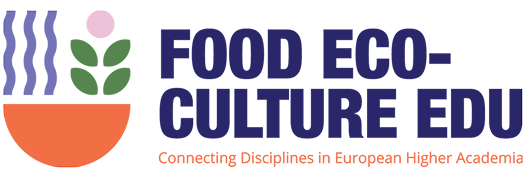Project partner Paula Whyte (Momentum, Ireland) had a chat recently with Fiona Kelleher, CEO of MyGug. As part of our ongoing work in the Food Eco-Culture Edu project, we’re always seeking out real-world examples of how food education can go beyond the classroom—becoming a lived, practical experience that connects sustainability, community, and culture. In this spirit, we were delighted to speak with Fiona, about how their innovative anaerobic digesters are transforming the way schools and communities approach food waste.
MyGug offers a powerful example of what Food Eco-Culture Edu promotes: interdisciplinary education in the food realm. By merging environmental science, digital skills, community values, and hands-on experience, MyGug is not only tackling food waste—it’s also building awareness, skills, and sustainable habits across generations

Case Studies: From Kitchen Waste to Circular Impact
MyGug for Schools: Learning by Doing
The MyGug Mini Digester is designed with schools in mind. It’s a fully enclosed, CE-certified system that safely processes nearly all kitchen food waste—from toast crusts to yogurts—into biogas and liquid fertiliser. The system is IoT-enabled, providing real-time data via the MyGug Dashboard. This gives students the opportunity to engage in live data analysis, track energy production, and observe environmental impact firsthand.
Schools using MyGug are seeing increased student engagement around sustainability topics. The compact units are placed near canteens or Home Economics rooms, offering a daily visual cue for circular thinking. Students help monitor the system, track energy output, and even use the bio-fertiliser in school gardens. These practical experiences deepen their understanding of food systems and resource recovery.
Fiona emphasised how introducing these technologies at school level not only aligns with global sustainability goals but also gives students a tangible role in climate action. “MyGug is a bin that never fills, a gas bag that never empties, and an unlimited source of bio-fertiliser,” she quipped—underscoring the closed-loop magic of circular systems.
Munster Technological University (MTU) – ‘Waste to Taste’ Initiative
MTU’s Department of Tourism & Hospitality has embedded MyGug into its zero-waste strategy. Their digester processes 6.7 tonnes of food waste annually, generating up to 3,300L of biogas and cutting emissions, fossil fuel use, and waste collection costs. Students and staff use the data from the MyGug dashboard for cross-disciplinary research—from biochemistry to climate science—while also using the bio-fertiliser to grow fresh produce for their training restaurant. It’s a powerful demonstration of sustainability in action. MTU MyGug case study.
A Scalable Model for Circular Communities

The MyGug model is scalable as well as being deeply replicable across communities eager to embed sustainability into daily life. As Fiona put it, “We’re not just solving a waste problem. We’re nurturing a mindset shift—one that begins in the classroom and radiates outwards into the home, the community, and the world.”
One powerful example Fiona shared during our conversation was from Cape Clear, an island off the coast of County Cork. Like many island communities, managing waste there poses unique challenges—especially food waste, which can lead to water pollution, vermin issues, and costly disposal logistics. But with the help of a MyGug digester, Cape Clear has flipped the script.
The result – A zero-food-waste community that’s now generating its own clean cooking gas for local events, producing fertiliser for flourishing community gardens, and enjoying the benefits of a more self-sufficient, resilient way of living. It’s a full-circle success story—proof that with the right tools and mindset, even small communities can make a big impact. Cape Clear Case study
Paula was so inspired by her conversation with Fiona that she found herself sharing MyGug’s story last week, while presenting on Food Waste Education at an event hosted by the BIA Innovator Campus. MyGug’s work perfectly illustrates the kind of grassroots, solution-focused innovation we need more of—practical, circular, and deeply rooted in education & community empowerment. It resonated strongly with attendees and reinforced the message that small-scale technologies can have a transformative impact when embedded in local systems.
Visit https://amugreen.com/ to learn more or explore how you can bring MyGug into your school or community.



